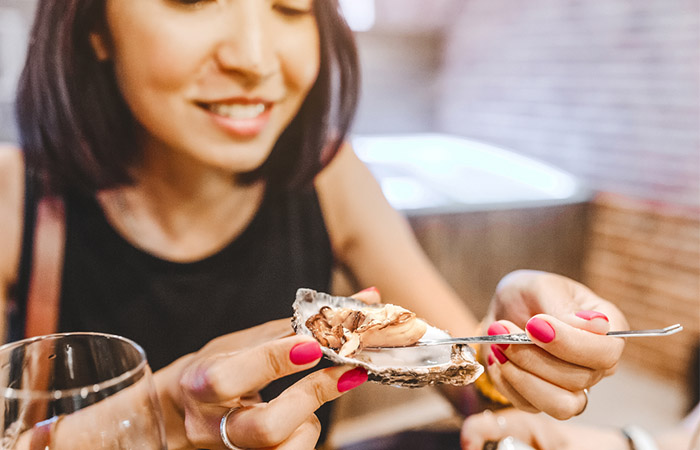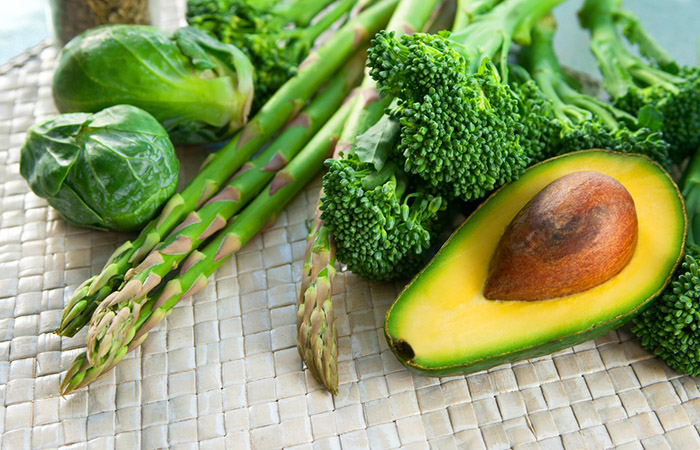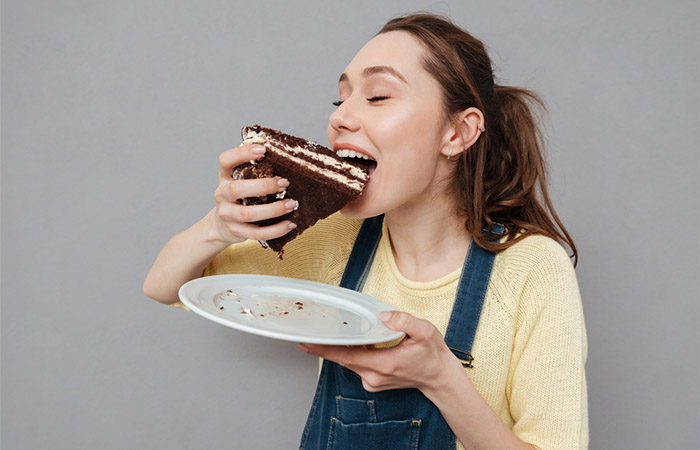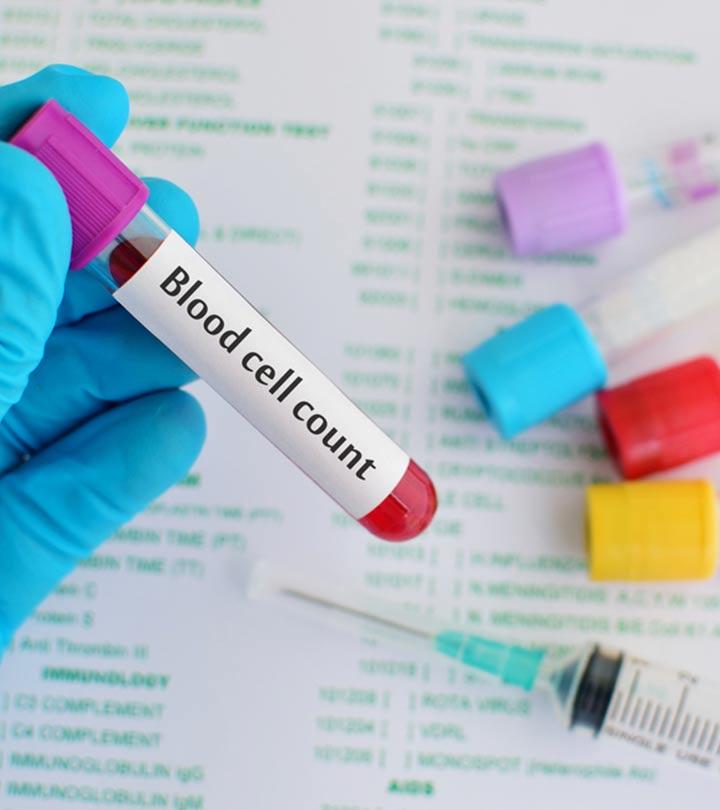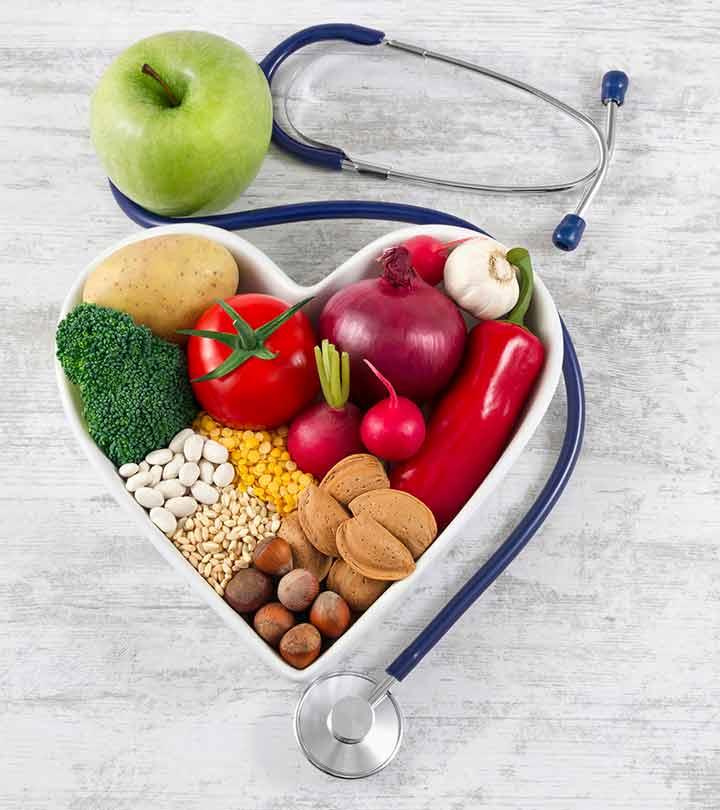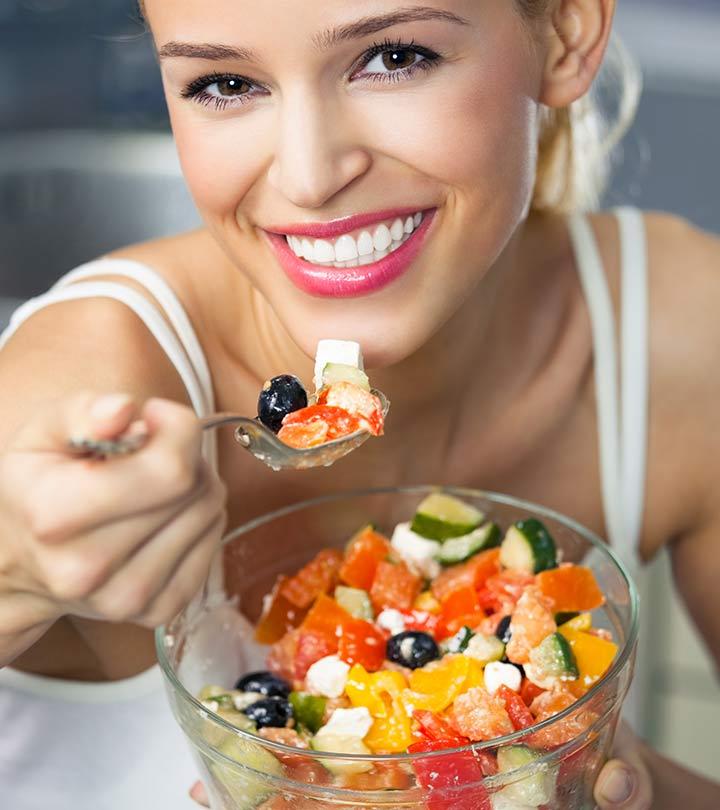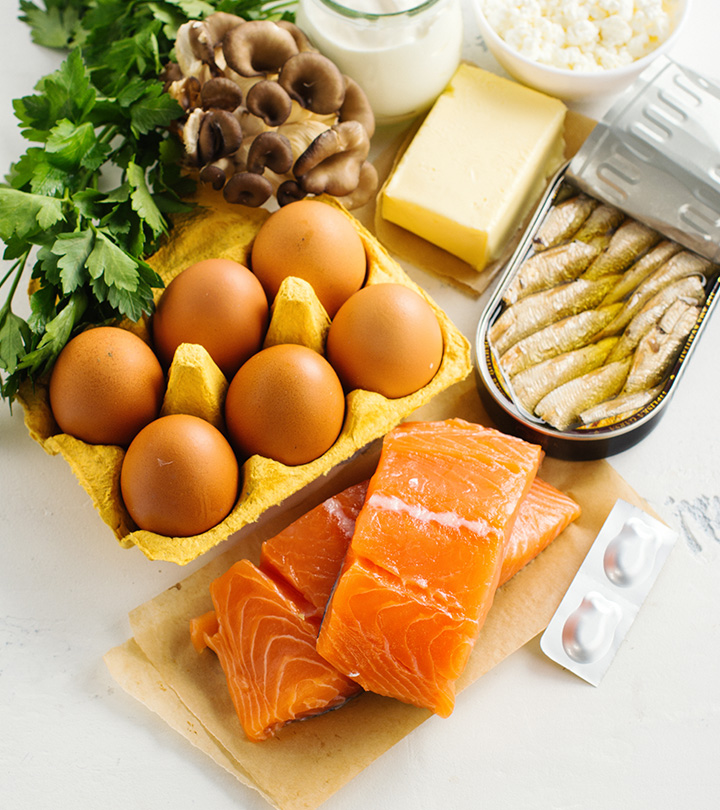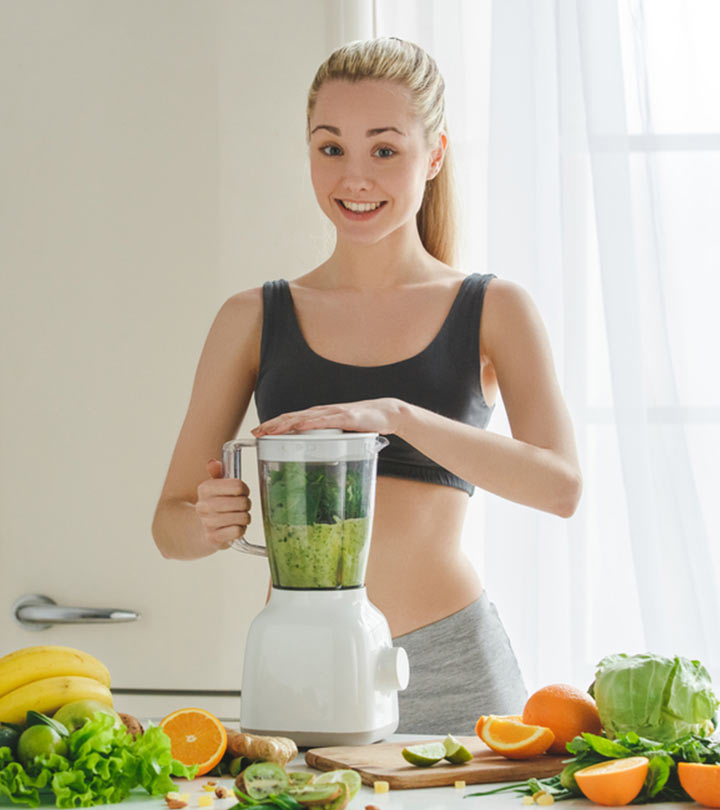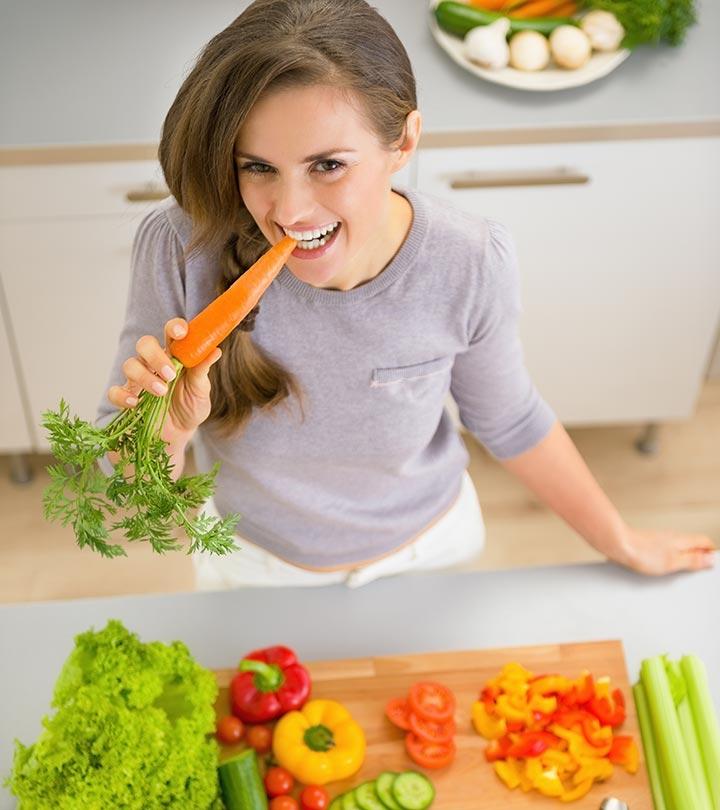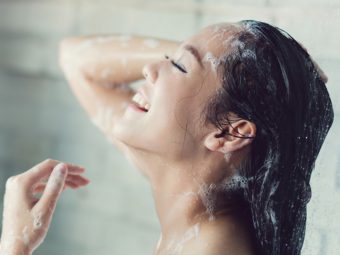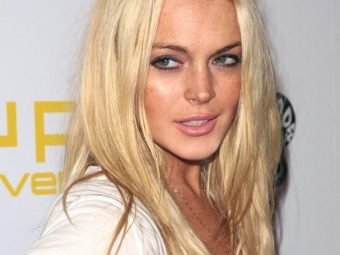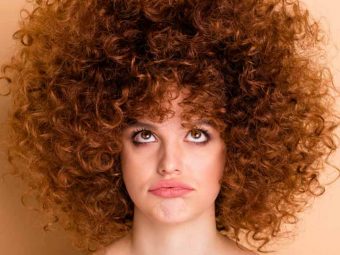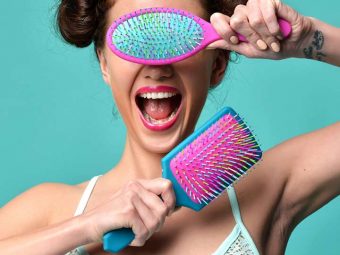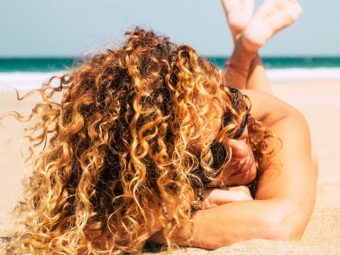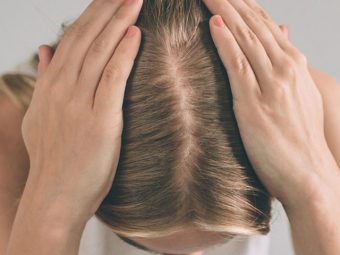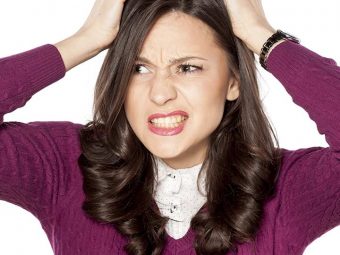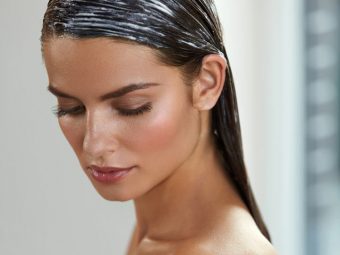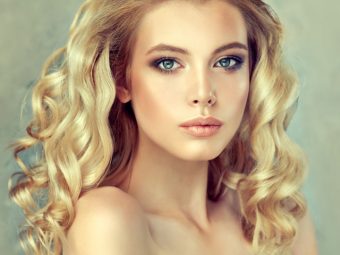15 Best Foods For Hair Growth You Should Be Eating Daily
Some foods can do wonders in growing healthy, long, and lustrous tresses!
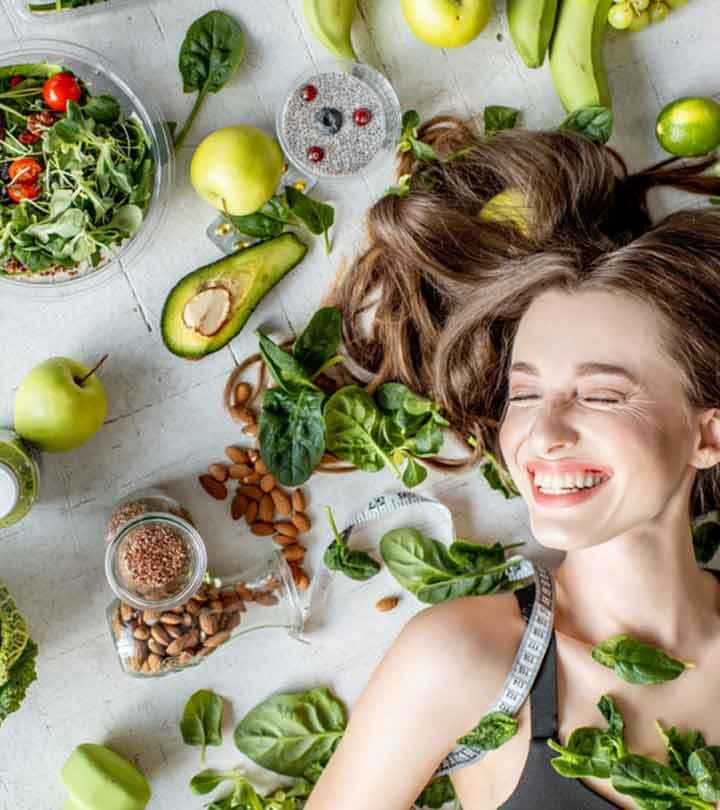
Image: ShutterStock
Long, strong, and thick hair is everyone’s dream. Make it come true with foods for hair growth. These foods are rich in protein, vitamins, and minerals that are required to keep your tresses lustrous and healthy. These foods also help promote hair growth naturally while keeping the strands tangle-free and soft from roots to tips. In this post, learn about which foods can help with your hair growth and solve half of your hair problems. Read on!
In This Article
What Are The Best Foods For Hair Growth?
1. Eggs
Eggs are packed with protein and are often used in hair masks and other hair care products. A study showed that egg yolk stimulated hair growth in human dermal papilla cellsi XParticular types of cells present at the bottom of hair follicles that are important for hair growth and regeneration. (1). Eggs are also rich in biotin that is essential for keratin (hair protein) production. Biotin may improve hair health (2). The selenium and zinc in eggs may also promote healthy hair. Anecdotal evidence suggests that eggs can make hair shinier and stronger and prevent brittleness and breakage.
2. Leafy Greens
Leafy green vegetables contain nutrients like folic acid and biotin that help maintain healthy hair (3). Spinach is rich in vitamin C, iron, and folate that may promote hair growth. Spinach is also rich in vitamin A (4). Studies show that vitamin A and its derivatives help in the development and maintenance of sebaceous glandsi XTiny glands underneath the surface of the skin that produce sebum, which acts as a natural lubricant and barrier for the skin and hair. (5).
3. Avocado
Avocados are nutrient-rich and versatile fruits. They are rich in vitamin B12, riboflavin, vitamins C and A, folate, iron, niacin, and vitamin B6. They also contain trace amounts of zinc (6). All these nutrients aid hair growth (7). Avocado has antioxidant properties thanks to its polyphenolsi XA group of natural plant-based compounds that have antioxidant properties and may prevent or delay serious diseases, such as cancer. , carotenoidsi XA set of pigments that exist naturally and render many plants their yellow, orange, and red colors. , and vitamins B and E that help strengthen the hair strands (8), (9), (10).
These antioxidant properties help reduce free radical production and can also prevent premature graying of hair. Also, avocado could have use as a hair conditioner (11). Its oleic acid may help strengthen each hair shaft from inside out and even prevent hair breakage. However, more research is warranted in this regard.
 Quick Tip
Quick TipYou can eat this delicious fruit as a spread on your bread or as a topping on your salad or soup. You can even incorporate it into a healthy smoothie or as a substitute for mayonnaise and sour cream.
4. Berries
Berries have a high content of vitamin C (12). Vitamin C also helps with iron absorption. It helps combat hair loss in those with iron deficiency (7). Studies show that saw palmetto berries may help stimulate hair growth (13). Black raspberry extracts may also help reduce hair loss due to alopecia (14).
5. Fish
Fish contains omega-3 fatty acids that can help improve hair health. The omega-3 acids can help inhibit 5-alpha-reductase that produces the hormone that may cause hair loss (15). Fish oil supplements are often used to improve hair quality. Fish like tuna are also rich in protein and are often added to diets to promote hair health.
Salmon fish is packed with omega-3 fatty acids. It also is rich in vitamin D (16). Vitamin D supplementation may help treat male and female pattern hair loss (17). Consumption of food sources high in omega-3 fatty acids is essential as your body cannot produce these healthy fats.
6. Legumes
Legumes are rich in protein (18). They contain genistein, which can inhibit 5-alpha-reductase activity (19). Legumes also contain zinc. Zinc deficiency may make hair brittle (20). Beans are a good source of iron (21). Iron deficiency may hinder follicular matrix celli XCells in the matrix near the bottom of the hair follicles that help promote the growth of hair shafts. proliferation (22).
7. Nuts
Brazil nuts are rich in selenium that may help keep the scalp and hair healthy (23). Nuts (like peanuts) are also rich in protein, minerals, and other important phenolic compounds (24). These nutrients may also promote hair health. However, more research is warranted in this regard.
Almonds, walnuts, and cashew nuts are rich in zinc too (25). They may promote hair health as well.
Walnuts are rich in alpha-linolenic acid (an omega-3 fatty acid), and deficiency of this nutrient may lead to scalp hair loss (26), (27).
8. Oysters
Oysters contain vitamins A, B, and C (28). They also are rich sources of zinc (29). Zinc deficiencies are often linked to hair falling. In one study, zinc supplementation was found to induce hair growth in patients with alopecia (30).
9. Seeds
Fenugreek seeds have been studied to stimulate hair growth (31). In a study, fenugreek hair tonic was found to aid hair growth in rabbits (32). Pumpkin seed oil was also found to stimulate hair growth in men with androgenic alopecia (33). Flaxseed oil showed significant hair growth stimulation in rabbits (34). Anecdotal evidence suggests that sunflower seeds can help improve hair quality.
10. Sweet Potatoes
Sweet potatoes contain iron, zinc, and calcium (35). They may help reduce hair loss caused due to nutrient deficiencies. They also have antioxidant properties thanks to their phenolic compounds (36). These may reduce hair fall associated with stress and free radical damage.
11. Tropical Fruits
Dragon fruit can help improve hair health (37). It is rich in vitamin C, which is known to offer protection from photoaging (38). The anti-photoaging properties of vitamin C on hair are yet to be studied. Mangoes and guava may also help improve hair health. They are rich in vitamins A and C. These vitamins help induce hair growth. They are also known to help with sebum production, which improves hair health (39), (40). Other tropical fruits like cherries and grapes can also help boost hair health.
12. Whole Grains
Biotin is found in cereal grains and may help reduce hair loss due to biotin deficiency (41). Whole grains also contain zinc, iron, and vitamin B (42). These nutrients also may promote hair health.
13. Chicken
The protein in lean meats like chicken or turkey helps strengthen hair follicles and aids hair growth. Chicken is rich in iron, which helps the red blood cells deliver oxygen to all parts of your body (43), (44). Chicken contains ferritin, which stores iron (45). The presence of ferritin in red meat may also make it an ideal food for hair health. However, more research is warranted in this regard.
14. Yogurt
Unsweetened yogurt is not only full of protein but also rich in probiotics. Probiotics are good bacteria that help absorb nutrients in your body (46). Dairy products like Greek yogurt is rich in vitamin B5 (47). Vitamin B5 may help with hair growth, though more studies are warranted.
 Quick Tip
Quick Tip15. Beans
Beans are a rich source of protein that is essential for hair growth. They contain zinc, iron, and biotin too (48). Soybeans contain spermidine, an important compound that prolongs the active phase of hair growth (49), (50).
Fats, vitamins, and minerals are essential for maintaining healthy hair. In the next section, you will find the importance of these nutrients along with their dietary sources.
Nutrients For Hair Growth
- Vitamin D
Vitamin D plays a major role in hair production and may also help create new hair follicles (51). Your body produces vitamin D when exposed to sun rays. It is also available in salmon, cod liver oil, mushrooms, and certain fortified foods.
- Vitamin E
Vitamin E has antioxidant properties that protect against oxidative stress. In one study, patients with alopecia (patchy hair loss) experienced a 34.5% increase in hair growth after vitamin E supplementation (52). Avocado, sunflower seeds, almonds, spinach, broccoli, wheat germ, and hazelnuts are rich in vitamin E.
- Iron
Foods with iron are essential for supporting healthy hair growth. Iron helps red blood cells to carry oxygen to body cells. Iron-deficiency anemia is a particularly common cause of hair loss in many women (53). Dietary sources of iron include clams, oysters, eggs, lentils, red meat, and spinach.
- Vitamin C
Vitamin C supports collagen production in the body, which is involved in the structural makeup of your hair (7). Oranges, guava, blackcurrants, broccoli, papaya, strawberries, blueberries, sweet pepper, kiwi, tangerines, and sweet potato are rich vitamin C sources.
- Omega-3 fatty acids
Omega-3 fatty acids play a major role in hair growth. They also keep your scalp and hair hydrated (15). Fatty fish like salmon, trout, herring, sardines, and mackerel, as well as flaxseeds, avocado, chia seeds, oats, walnuts, and pumpkin seeds, are rich sources of omega-3 fatty acids.
- Biotin
Biotin is a water-soluble B vitamin that supports hair growth (2). Dietary sources of biotin include liver, egg yolk, yeast, and whole grains.
- Zinc
Zinc is a trace mineral that helps in hair growth and repair (20). Zinc deficiency can lead to a dry, flaky scalp. However, anecdotal evidence suggests that excess zinc intake (>40 mg per day) may cause hair loss. Whole grains, oysters, spinach, fortified cereals, lentils, eggs, and pumpkin seeds are rich sources of zinc.
- Niacin
This B-vitamin may also play a role in hair growth. Anecdotal evidence suggests that it supports moisture balance for a healthy scalp. Dietary sources of this vitamin include eggs, nuts, mushrooms, tuna, and beef.
We saw foods that can boost your hair growth. There also are certain foods that may negatively affect your hair growth. Check them out in the following section.
Foods You Should Avoid For Healthy Hair Growth
- Alcohol
Consumption of alcohol decreases the levels of zinc in the body, leading to zinc deficiency (54). This may lead to hair loss.
- Sugar
Moderate consumption of sugar does not necessarily cause hair loss. However, excess intake through cakes, white bread and pasta, pastries, and other refined starches may lead to hair loss. Further studies are warranted in this regard.
Other Factors That Affect Hair Growth
A few other factors that may affect hair growth include aging, stress, thyroid issues, childbirth, menopause, genes, chronic illness, and malnutrition.
Infographic: Lifestyle Tips To Boost Hair Growth
Nutrition is crucial in keeping your mane healthy and boosting its growth. However, some lifestyle tips may also prove handy to nourish your tresses and strengthen the hair follicles. Check out the infographic below to learn easy-to-follow everyday tips to boost hair growth. Illustration: StyleCraze Design Team
Save the high-quality PDF version on your device now.
Download Infographic
The saying “You are what you eat” couldn’t be more true for hair. If you eat a healthy diet and nutrient-rich foods, your hair will be beautiful and strong. In fact, in many cases, hair loss is caused due to some nutrient deficiency that can be remedied easily. The best foods for hair growth are eggs, leafy greens, avocado, berries, fish, legumes, nuts, oysters, seeds, sweet potatoes, tropical fruits, whole grains, chicken, yogurt, and beans. All of these foods contain vitamins, minerals, proteins, and other nutrients that are essential for healthy hair growth. You should stay away from alcohol and sugary foods to keep your hair looking luscious.
Frequently Asked Questions
Is coffee good for hair growth?
Yes. Coffee contains caffeine, which stimulates matrix cells in your scalp to divide, thus promoting hair growth. Caffeine also reduces moisture loss from the scalp, thus stimulating healthy hair cell production. Coffee also fights against hair loss.
Is banana good for hair growth?
Yes. Banana improves your hair health, making it shiny, nourished, and protected from damage and microbial infections. Hair growth occurs when your hair is healthy.
Is aloe vera good for hair growth?
Aloe vera is a common ingredient for stimulating hair growth in Ayurveda. Anecdotal evidence suggests that aloe vera stimulates better blood circulation, which promotes hair growth.
Discover the top 20 foods that make your hair grow faster! Get the luscious lock you have always wanted. Click on this video now!
Sources
- Naturally Occurring Hair Growth Peptide: Water-Soluble Chicken Egg Yolk Peptides Stimulate Hair Growth Through Induction of Vascular Endothelial Growth Factor Production.
https://pubmed.ncbi.nlm.nih.gov/29583066/ - A Review of the Use of Biotin for Hair Loss
https://pubmed.ncbi.nlm.nih.gov/28879195/ - Diet and hair loss: effects of nutrient deficiency and supplement use
https://www.ncbi.nlm.nih.gov/pmc/articles/PMC5315033/ - Spinach or carrots can supply significant amounts of vitamin A as assessed by feeding with intrinsically deuterated vegetables
https://pubmed.ncbi.nlm.nih.gov/16210712/ - Endogenous retinoids in the hair follicle and sebaceous gland
https://pubmed.ncbi.nlm.nih.gov/21914489/ - Hass Avocado Composition and Potential Health Effects
https://www.ncbi.nlm.nih.gov/pmc/articles/PMC3664913/ - The Role of Vitamins and Minerals in Hair Loss: A Review
https://www.ncbi.nlm.nih.gov/pmc/articles/PMC6380979/ - The Odyssey of Bioactive Compounds in Avocado (Persea americana) and Their Health Benefits
https://www.ncbi.nlm.nih.gov/pmc/articles/PMC6826385/ - Effects of Tocotrienol Supplementation on Hair Growth in Human Volunteers
https://www.ncbi.nlm.nih.gov/pmc/articles/PMC3819075/ - Biotin and biotinidase deficiency
https://pubmed.ncbi.nlm.nih.gov/19727438/ - NUTRITIONAL AND PHARMCEUTICAL BENIFITS OF AVOCADO PLANT
https://www.researchgate.net/publication/329388661_NUTRITIONAL_AND_PHARMCEUTICAL_BENIFITS_OF_AVOCADO_PLANT - Bioactive Compounds and Antioxidant Activity in Different Types of Berries
https://www.ncbi.nlm.nih.gov/pmc/articles/PMC4632771/ - PROSPECT OF HERBS AS HAIR GROWTH POTENTIAL
https://www.researchgate.net/publication/312167161_PROSPECT_OF_HERBS_AS_HAIR_GROWTH_POTENTIAL - Hair loss: A review of the role of food bioactive compounds
https://www.semanticscholar.org/paper/Hair-loss%3A-A-review-of-the-role-of-food-bioactive-Wei-Martirosyan/7d23c75f8059a20ae2e4a4833dbe3185799f493c?p2df - Mackerel-Derived Fermented Fish Oil Promotes Hair Growth by Anagen-Stimulating Pathways
https://www.ncbi.nlm.nih.gov/pmc/articles/PMC6164340/ - An Evaluation of the Vitamin D3 Content in Fish: Is the Vitamin D Content Adequate to Satisfy the Dietary Requirement for Vitamin D?
https://www.ncbi.nlm.nih.gov/pmc/articles/PMC2698592/ - The Role of Vitamin D in Non-Scarring Alopecia
https://www.ncbi.nlm.nih.gov/pmc/articles/PMC5751255/ - Legumes: Health Benefits and Culinary Approaches to Increase Intake
https://www.ncbi.nlm.nih.gov/pmc/articles/PMC4608274/ - Legumes and soybeans: overview of their nutritional profiles and health effects
https://academic.oup.com/ajcn/article/70/3/439s/4714906 - Zinc Deficiency
https://www.ncbi.nlm.nih.gov/books/NBK493231/ - Iron absorption from beans with different contents of iron, evaluated by stable isotopes
https://pubmed.ncbi.nlm.nih.gov/29779806/ - Micronutrients in hair loss
https://www.researchgate.net/publication/326180006_Micronutrients_in_hair_loss - Selenium
https://ods.od.nih.gov/factsheets/Selenium-HealthProfessional/ - Health benefits of nut consumption
https://pubmed.ncbi.nlm.nih.gov/22254047/ - Evaluation of the content and bioaccessibility of iron, zinc, calcium and magnesium from groats, rice, leguminous grains and nuts
https://www.ncbi.nlm.nih.gov/pmc/articles/PMC3931887/ - Scientific Processing of Walnuts Necessary for Amazing Health Benefits
https://www.researchgate.net/publication/319182987_Scientific_Processing_of_Walnuts_Necessary_for_Amazing_Health_Benefits - Diet and hair loss: effects of nutrient deficiency and supplement use
https://www.ncbi.nlm.nih.gov/pmc/articles/PMC5315033/ - THE NUTRITIONAL VALUE OF OYSTERS AND OTHER SEA FOOD
https://www.ncbi.nlm.nih.gov/pmc/articles/PMC1321488/pdf/amjphealth00024-0001a.pdf - Nutraceutical potential of Oyster
https://www.researchgate.net/publication/350740083_Nutraceutical_potential_of_Oyster - The therapeutic effect and the changed serum zinc level after zinc supplementation in alopecia areata patients who had a low serum zinc level
https://pubmed.ncbi.nlm.nih.gov/20523772/ - Fenugreek+micronutrients: Efficacy of a food supplement against hair loss
https://www.researchgate.net/publication/251923543_Fenugreekmicronutrients_Efficacy_of_a_food_supplement_against_hair_loss - EFFECTIVENESS TEST OF FENUGREEK SEED ( Trigonella foenum-graecum L . ) EXTRACT HAIR TONIC IN HAIR GROWTH ACTIVITY
https://www.semanticscholar.org/paper/EFFECTIVENESS-TEST-OF-FENUGREEK-SEED-(-Trigonella-L-Wijaya-Mun%E2%80%99im/d0417d40660c465157ac1dbff69ea336df7a2334 - Effect of Pumpkin Seed Oil on Hair Growth in Men with Androgenetic Alopecia: A Randomized, Double-Blind, Placebo-Controlled Trial
https://www.ncbi.nlm.nih.gov/pmc/articles/PMC4017725/ - Effects of Linum usitatissimum L. ingestion and oil topical application on hair growth in rabbit
https://www.researchgate.net/publication/283730350_Effects_of_Linum_usitatissimum_L_ingestion_and_oil_topical_application_on_hair_growth_in_rabbit - Study of Sweet Potato ( Ipomea batatas Lam) Foods for Indigenous Consumption Through Chemical and Anti-Nutritive Analysis in Kwara State, Nigeria
https://www.researchgate.net/publication/42973306_Study_of_Sweet_Potato_Ipomea_batatas_Lam_Foods_for_Indigenous_Consumption_Through_Chemical_and_Anti-Nutritive_Analysis_in_Kwara_State_Nigeria - Antioxidative components of sweet potatoes
https://pubmed.ncbi.nlm.nih.gov/6737096/ - Miraculous Health Benefits of Exotic Dragon Fruit
http://www.aelsindia.com/rjcesoctober2017/17.pdf - Exploring the Potential Use of Hylocereus polyrhizus Peels as a Source of Cosmeceutical Sunscreen Agent for Its Antioxidant and Photoprotective Properties
https://www.ncbi.nlm.nih.gov/pmc/articles/PMC7222543/ - Dietary vitamin A regulates wingless-related MMTV integration site signaling to alter the hair cycle
https://pubmed.ncbi.nlm.nih.gov/25361771/ - Endogenous retinoids in the hair follicle and sebaceous gland
https://pubmed.ncbi.nlm.nih.gov/21914489/ - A Review of the Use of Biotin for Hair Loss
https://www.ncbi.nlm.nih.gov/pmc/articles/PMC5582478/ - How Important are Cereals and Cereal Products in the Average Polish Diet?
https://www.ncbi.nlm.nih.gov/pmc/articles/PMC6470554/ - Oxygen Transport
https://www.ncbi.nlm.nih.gov/books/NBK54103/ - Total and haem iron content lean meat cuts and the contribution to the diet
https://pubmed.ncbi.nlm.nih.gov/26433293/ - Ferritin for the Clinician
https://www.ncbi.nlm.nih.gov/pmc/articles/PMC2717717/ - Yoghurt
https://www.sciencedirect.com/topics/neuroscience/yoghurt - Pantothenic Acid
https://ods.od.nih.gov/factsheets/PantothenicAcid-HealthProfessional/ - Iron and zinc retention in common beans (Phaseolus vulgaris L.) after home cooking
https://www.ncbi.nlm.nih.gov/pmc/articles/PMC3292239/ - A spermidine-based nutritional supplement prolongs the anagen phase of hair follicles in humans: a randomized, placebo-controlled, double-blind study
https://pubmed.ncbi.nlm.nih.gov/29214104/ - Spermidine promotes human hair growth and is a novel modulator of human epithelial stem cell functions
https://pubmed.ncbi.nlm.nih.gov/21818338/ - Vitamin D in trichology: a comprehensive review of the role of Vitamin D and its receptor in hair and scalp disorders.
https://www.researchgate.net/publication/333918246_Vitamin_D_in_trichology_a_comprehensive_review_of_the_role_of_Vitamin_D_and_its_receptor_in_hair_and_scalp_disorders - Effects of tocotrienol supplementation on hair growth in human volunteers
https://pubmed.ncbi.nlm.nih.gov/24575202/ - Iron deficiency in female pattern hair loss, chronic telogen effluvium, and control groups
https://pubmed.ncbi.nlm.nih.gov/20947203/ - Zinc deficiency as a mediator of toxic effects of alcohol abuse
https://pubmed.ncbi.nlm.nih.gov/29177978/
Key Takeaways
- Eggs, leafy greens, avocados, berries, fish, legumes, nuts, and oysters are some of the best foods for hair growth.
- Vitamins C, D, and E, iron, omega-3 fatty acids, zinc, biotin, and niacin promote hair growth.
- Avoid alcohol and consume a moderate amount of sugar to achieve healthy hair.




